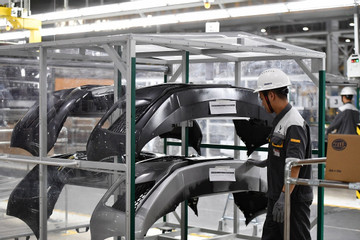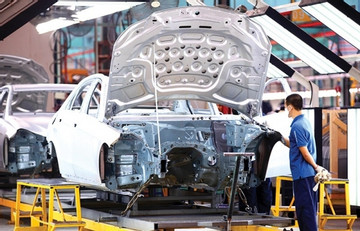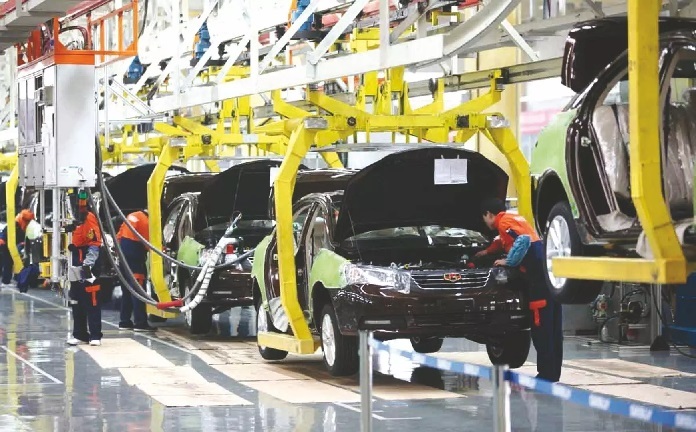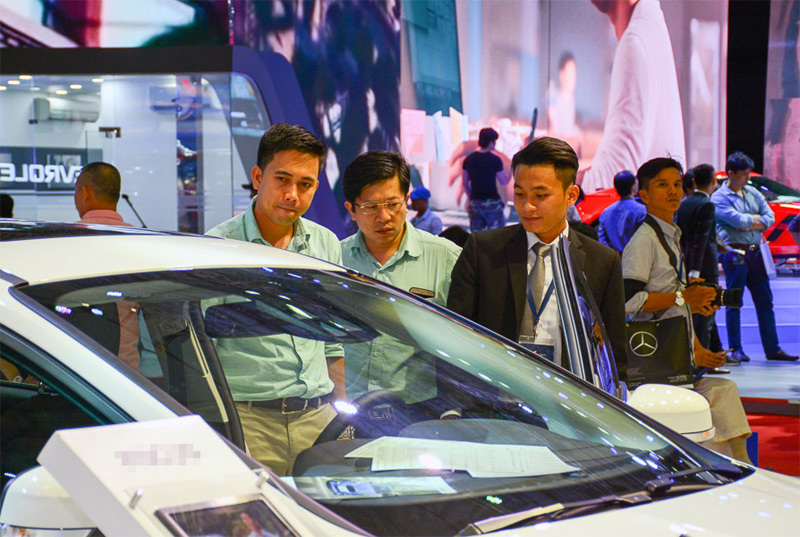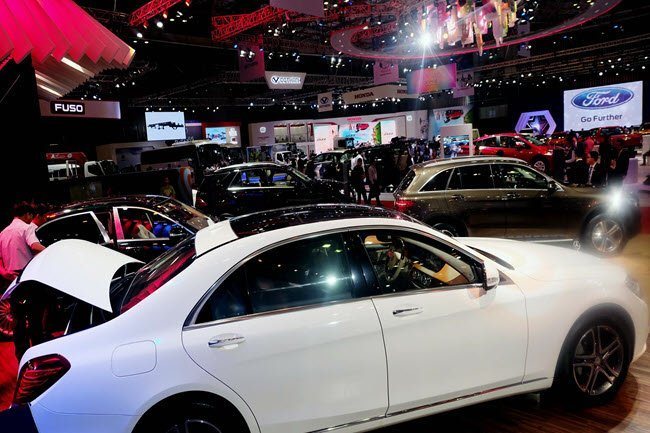- © Copyright of Vietnamnet Global.
- Tel: 024 3772 7988 Fax: (024) 37722734
- Email: evnn@vietnamnet.vn
vietnam automobile industry
Update news vietnam automobile industry
Vietnam’s EV industry to create 6.5 million jobs by 2050, says World Bank
A World Bank report released on March 12, 2025, underscores Vietnam’s booming electric vehicle market, which is expected to revolutionize transportation and generate millions of high-tech jobs.
Oversupply creates opportunity for consumers looking to buy a new car
The domestic automobile market in early 2025 is experiencing a significant shift, characterised by aggressive price reductions on 2024 models.
Domestic auto market shows signs of recovery
Cautious optimism as Vietnam’s car market shows tentative signs of growth, which is expected to improve even more with new government policies to support the sector.
Mitsubishi chooses Vietnam for XFC Concept debut
Mitsubishi Motors Corporation held the world premiere of the Mitsubishi XFC Concept, a compact SUV, in Ho Chi Minh City on October 19.
Old rules may hinder VN’s automobile industry development
The Ministry of Finance (MOF) wants to apply regulations for the automobile industry which existed 17-18 years ago, but the Ministry of Science and Technology (MST) wants to remove them.
Vietnam scrambles to meet global car-making standards
Many carmakers are hunting for suppliers to meet the demand that has been rising since last year, as well as counter the increasing prices of palladium, nickel, and aluminium for their components.
Policy vision: outdated regulations hold back auto industry
Looking back at the history of the automobile industry in Vietnam, the biggest limitation is the vision and capacity of policy makers.
More foreign auto manufacturers find their way to Vietnam
The Vietnamese auto market will be busier when several foreign automobile companies invest in Vietnam.
Portraits of Made-in-Vietnam automakers
Mr. Tran Van Tam, the owner of a homemade electric car, was recentlyy introduced on a British news site. Tam’s road from a dream to research and development of cars was a difficult journey.
Automakers warned against underestimating reputation of Chinese cars
Contrary to all predictions, Chinese cars continue to flow into Vietnam and sales have been increasing steadily, despite Covid-19 and the poor reputation of Chinese brands.
Localization-ratio rules in auto manufacturing remains controversial
The regulations on defining a localization ratio for automobile products are out of date, according to experts.
Registration fees for domestically manufactured and assembled cars to be cut by 50%
According to Decree 103 issued by the Government on November 26, the first-paid registration fee for cars manufactured and assembled locally will be reduced by 50% from December 1, 2021 to May 31, 2022.
Positive signs for year-end car shopping
Car sales in Vietnam increased by 52 percent last month after five consecutive months of decline, showing positive signs for the car market at the end of the year.
Vietnam’s automobile supporting industry remains underdeveloped
Only a few spare parts are produced domestically, forcing domestic manufacturing and assembling enterprises to import automobile spare parts from other sources, experts said.
Automobile producers struggle with lack of microchip
Semiconductor chip shortage has caused a crisis for major automobile producers in the world, forcing them to suspend production and extend the time to deliver their products,
VN auto manufacturers hit hard for last two years
The Vietnamese auto market prospered for a few years before being affected by the Covid-19 pandemic, but sales of locally assembled cars have fallen.
Roadmap needed to develop ‘clean’ auto industry
To develop electric vehicle industry, charging stations, batteries and reasonable prices are all needed. But an overall policy for these issues is not yet available in Vietnam, particularly battery waste disposal and treatment.
New regulations to change Vietnam automobile industry in 2021
Cars in Vietnam since 2021 are subject to new regulations such as registration fee, import tariff, and higher emission standards.
Finance ministry wants car registration fee cut suspended
The Ministry of Finance has written to the prime minister proposing a halt to the reduction in the registration fee for locally assembled or manufactured cars,
Vietnam gov’t eyes further preferential policies to support automobile industry
Existing incentive policies are not attractive enough to encourage local enterprises to further invest in the automobile industry.




